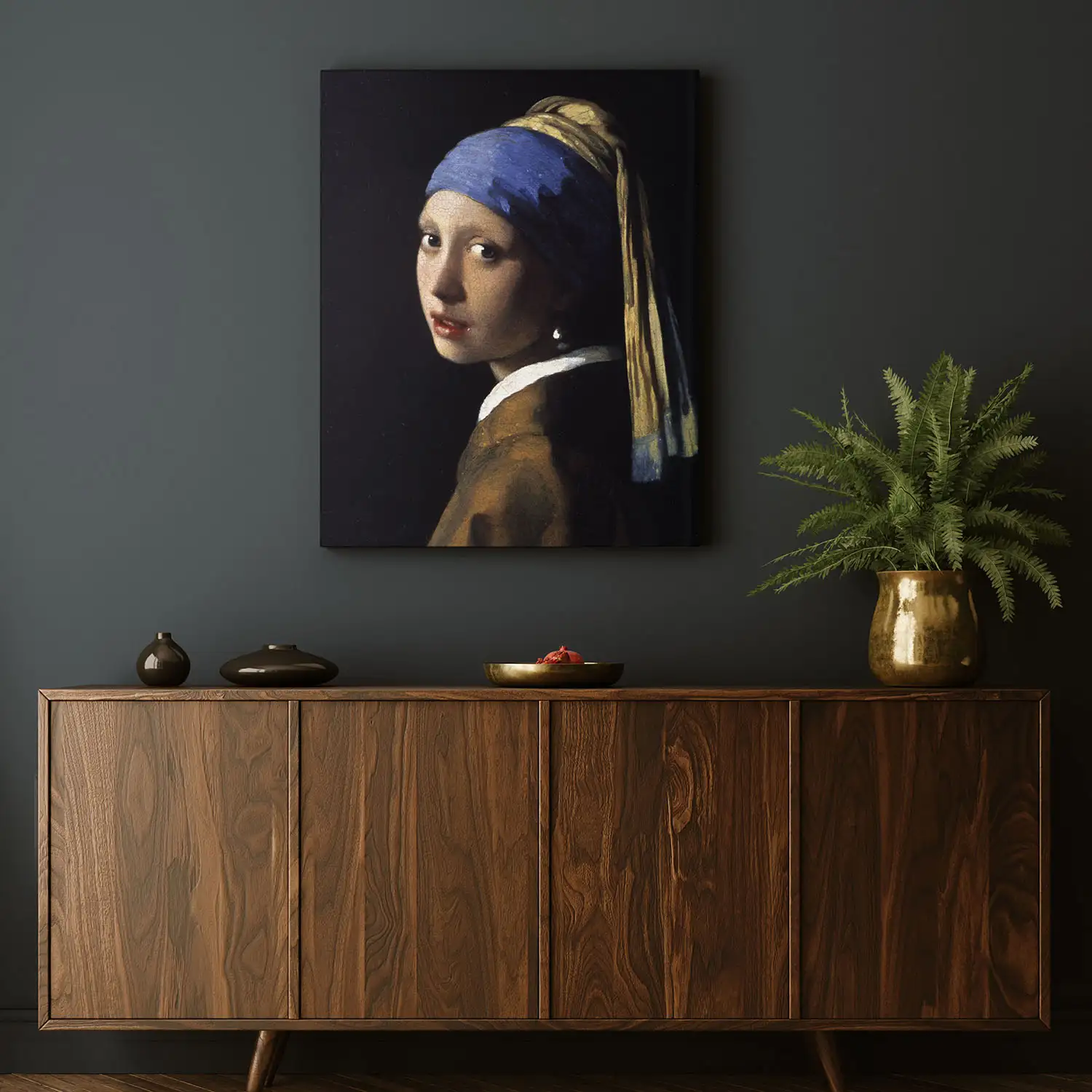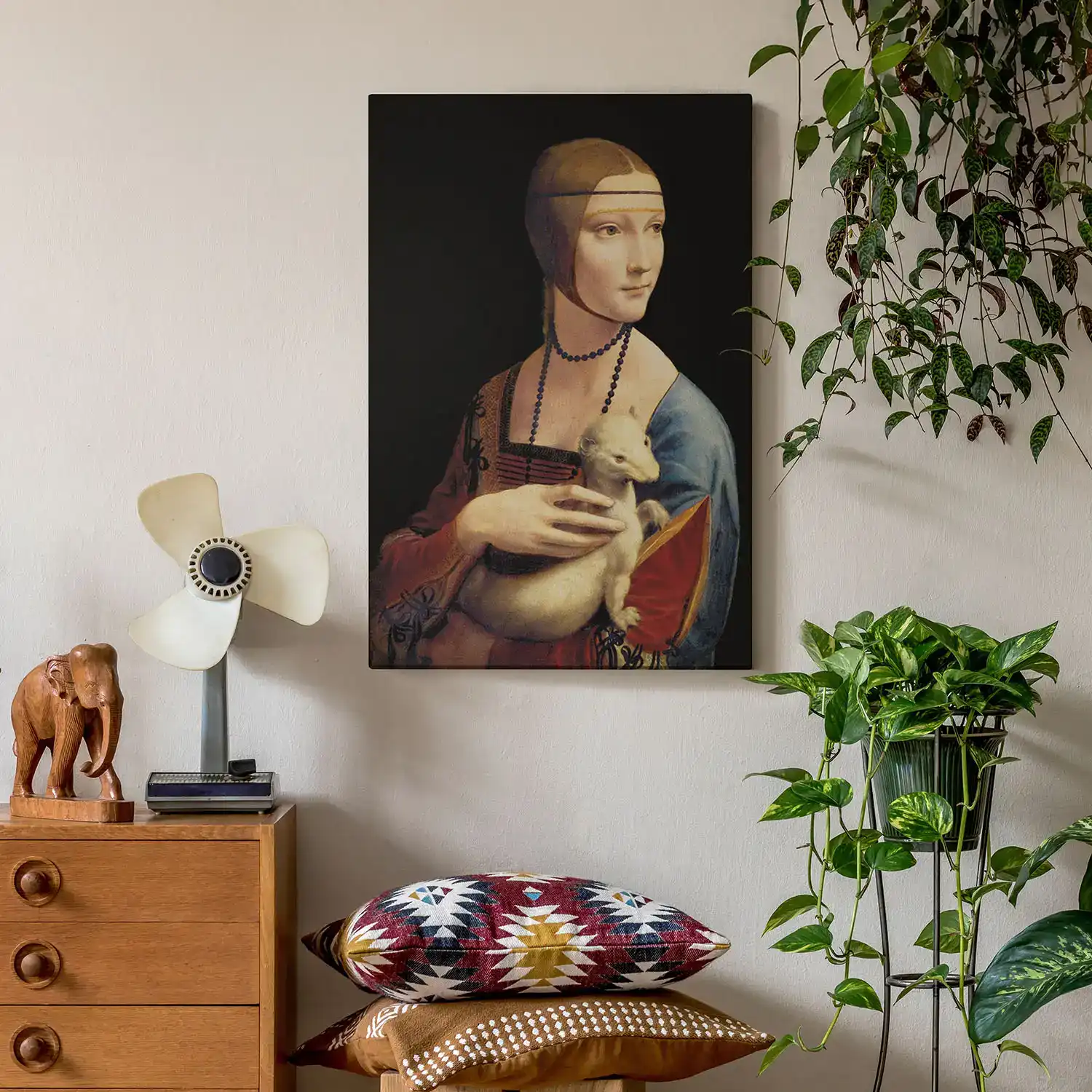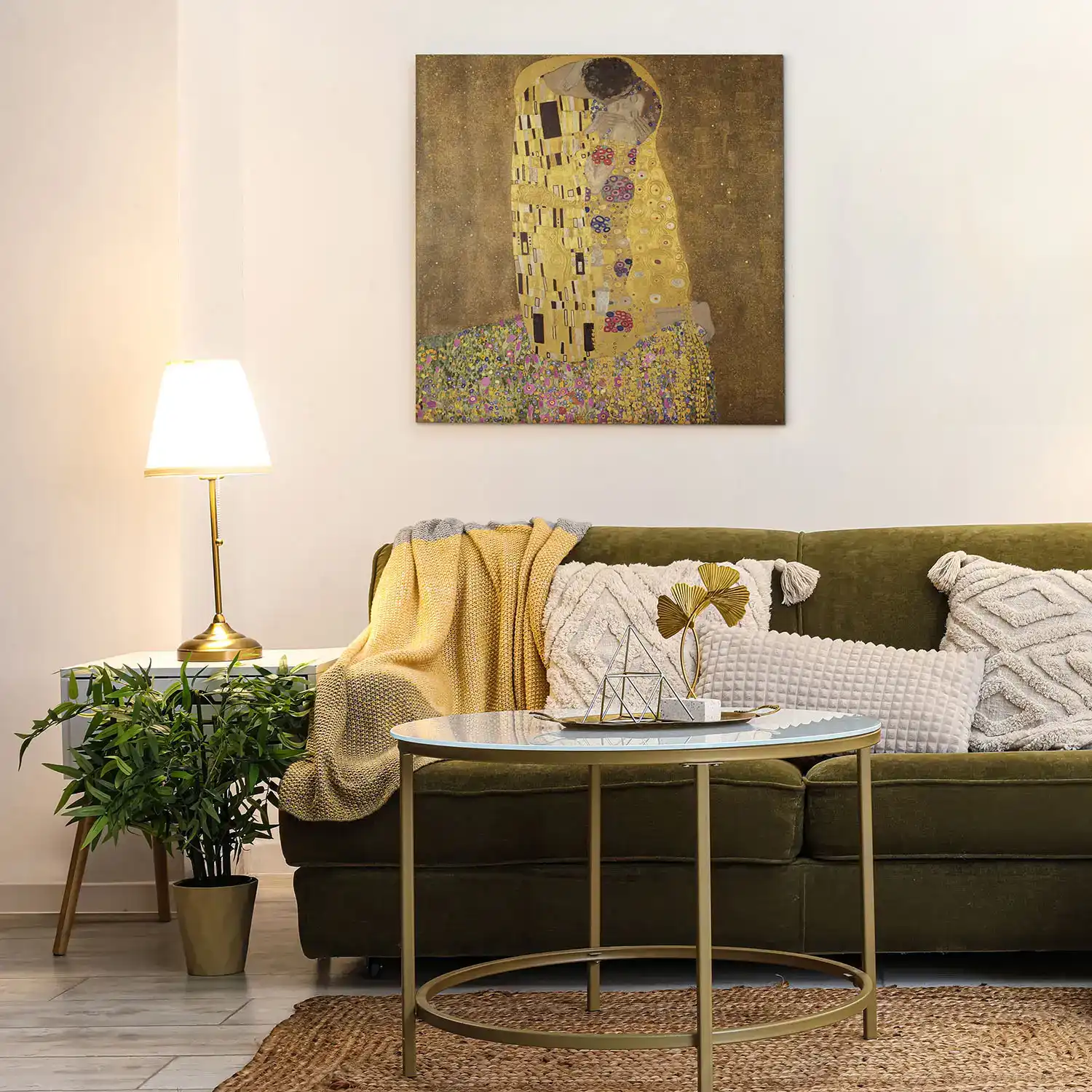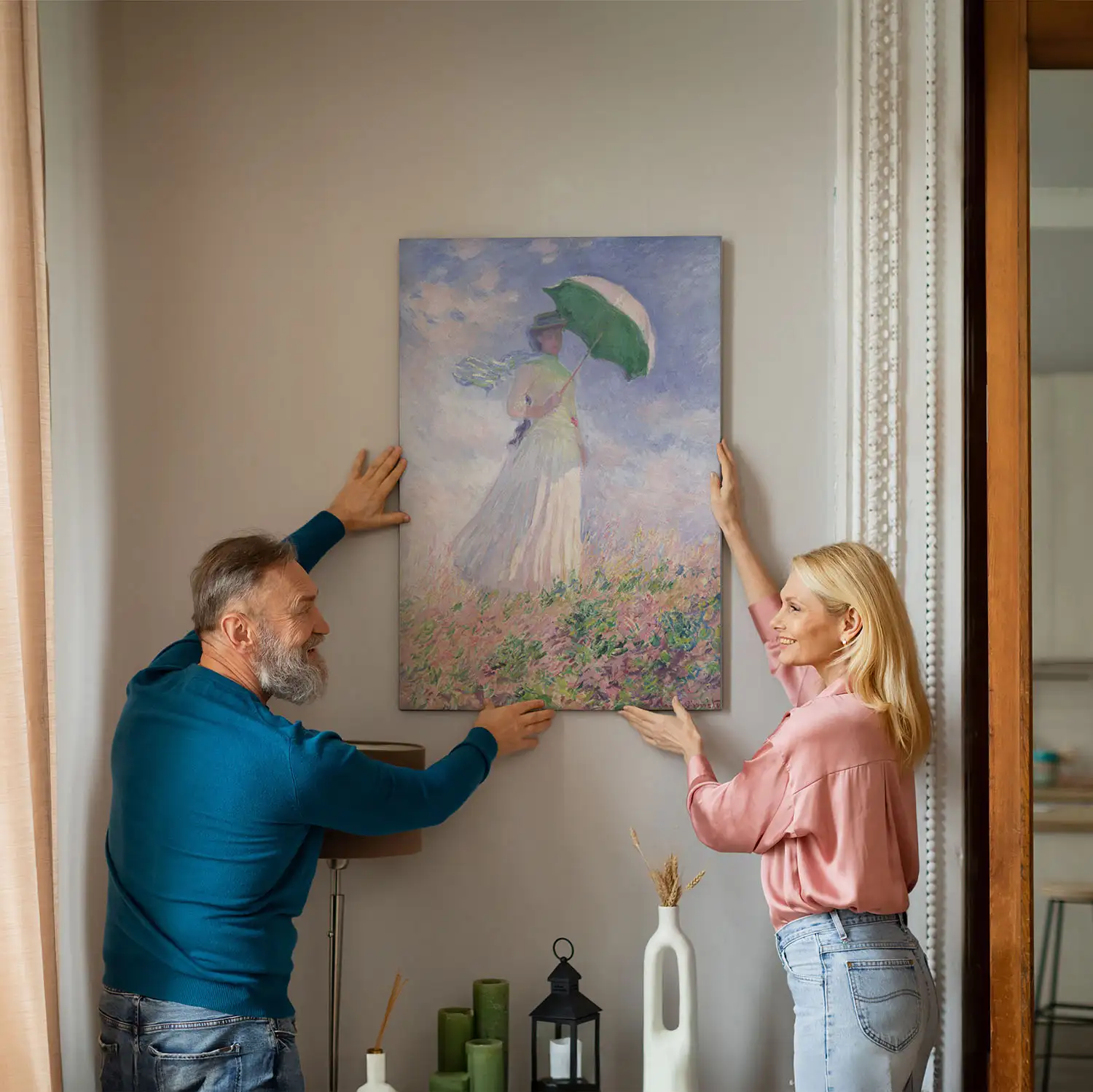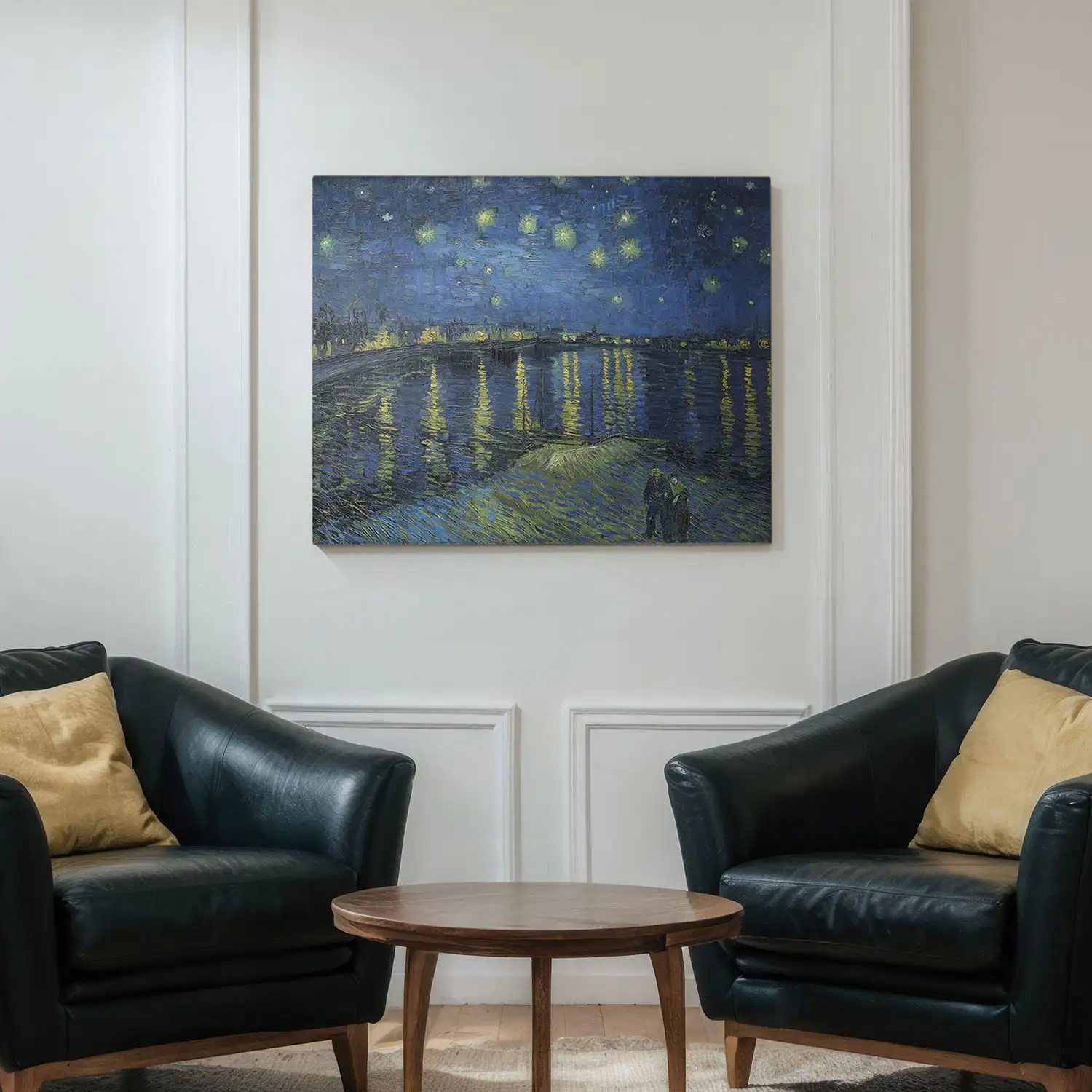Linearity, static depictions and moderate colours - these are the main characteristics of Jean Auguste Dominique Ingres's paintings. He was a 19th-century classicist painter with French roots. The artist was focused mainly on elegant portraits and historical paintings. If you are passionate about works of art in such themes and you want to admire them in your living room or office, we recommend the reproductions of Jean Auguste Dominique Ingres's paintings. These beautiful canvas paintings from bimago can become the perfect addition to a living room in a vintage, classical or eclectic style!
Reproductions of Jean-Auguste-Dominique Ingres Paintings
Jean-Auguste-Dominique Ingres (1780-1867) was a French neoclassical painter. His style quickly developed, and he remained loyal to it, fiercely resisting romantic trends. His art is characterized by an extraordinary atmosphere, tranquility, and linearity**. Ingres** was known for his perfectionism, often spending years refining his paintings. He believed that brushstrokes on the canvas should not be visible. In Ingres's body of work, you will find mainly historical paintings, portraits, and nudes. Some of his notable works include "The Turkish Bath," "The Grande Odalisque," and "The Bather."
Reproductions of Jean-Auguste-Dominique Ingres' Works
Jean-Auguste-Dominique Ingres' paintings are known for their classical elegance. If you dream of portraits and historical paintings in your interiors, this collection is for you. Among the canvas reproductions of this artist, you will find primarily elegant portraits. In his works, Jean-Auguste-Dominique Ingres drew inspiration from antiquity and the Renaissance. His models in depicting human figures were Phidias and Raphael, which is why his portraits idealize the subjects while showcasing their psychological traits. In the bimago gallery, you can order reproductions of portraits of famous figures such as Niccolo Paganini or Napoleon I. The collection also includes historical and biblical scenes. Jean-Auguste-Dominique Ingres' paintings will perfectly fit in a vintage, classical, or eclectic-style living room. Reproductions of his works will also make an ideal wall decoration in an office.
Jean Auguste Dominique Ingres
Jean Auguste Dominique Ingres was a French painter and portraitist of the late 18th and early 19th centuries. He was born in 1780 in Montauban. He was the son of the painter Joseph Ingres, from whom he inherited a passion for art. He studied at the School of Fine Arts in Toulouse, and later joined the studio of Jacques-Louis David in Paris. He also spent time in Italy, where in 1834 he became the director of the French Academy in Rome, located in the Villa Medici. The artist continued to create art virtually until the end of his life.
Jean Auguste Dominique Ingres was known for his historical paintings, portraits, and nudes. He also depicted mythological scenes and often drew inspiration from antiquity and the Renaissance.
Ingres' paintings are characterized by an extraordinary atmosphere, tranquility, and linearity. The artist was known for always striving for perfection, placing great importance on the purity of contour and precision of form.
The Turkish Bath Painting and Other Works by Ingres
One of Ingres' most famous works is "The Turkish Bath." Created in 1862, it depicts a group of naked women in a harem. "The Turkish Bath" painting, inspired by oriental culture and art, represents the culmination of Ingres' many years of exploration of the nude genre. Other popular works by the artist include pieces like "The Grande Odalisque" and "The Bather." The contents of Ingres' studio, including several of his most important paintings and over 4,000 drawings, were donated to the municipal museum in Montauban, now known as the Musée Ingres. The artist's works can also be admired in places like the Louvre**. Reproductions of Ingres' paintings** are highly popular. "The Turkish Bath" painting and other artworks inspired by Ingres can be used as stylish decorations for rooms decorated in a vintage, classical, or eclectic style.
